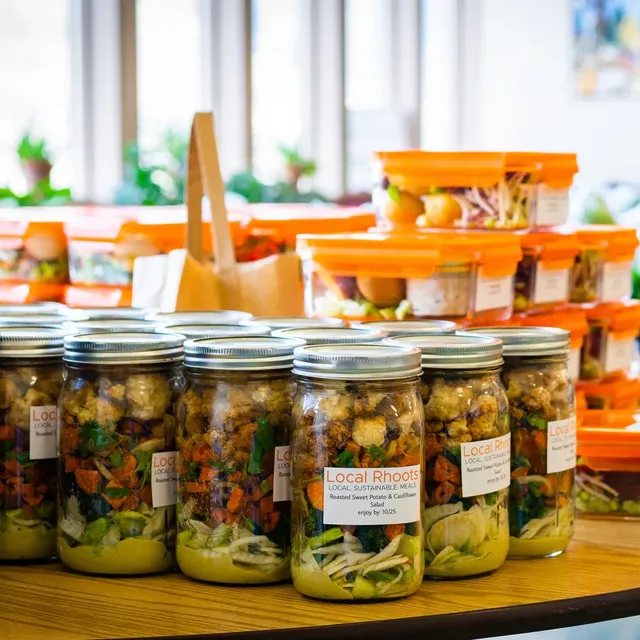Surprises in Parenting: What First-Time Parents Don't Expect (But Should)
First-time parents often prepare for the arrival of their baby with detailed plans and expectations, but surprises are inevitable. In this guide, we explore the unexpected challenges that new parents face—from sleepless nights to postpartum recovery—and offer practical tips to navigate them. Learn how to manage household help, mental health, and baby care, with expert advice from Dr. Michelle Gerbi and local resources from the Columbia Gorge area to help support your journey into parenthood.
March 13, 2025

Most first-time parents start the journey with the feeling that if you prepare enough, everything will go according to plan. Whether you're planning a hospital birth or a home birth, it’s easy to equate “doing your homework” with a guarantee that things will turn out the way you intend. In my 18 years of working with new parents, I’ve seen this pattern often. You take the classes, read the books, and follow all the advice—so everything should go smoothly, right?
But here’s what I want every new parent to understand: We can’t control how our baby enters the world or how those early days unfold.
I’ve seen moms with health concerns, stressful jobs, or complex mental health challenges have wonderfully smooth births and postpartum experiences. And I’ve seen moms with no pre-existing issues have birth plans go completely sideways, followed by postpartum complications they never expected. It’s not about how much you prepare; sometimes, things just take unexpected turns. Here are some of the common things that catch new parents off guard—and what you can do to be a little more prepared for the unexpected.

Infant breastfeeding
1. “Time Off” Isn’t Really Time Off
Maternity and paternity leave aren’t about lounging at home with a sleeping baby. Instead, it's an intense period of adjustment—emotionally and physically—as you step into the role of caring for a newborn, often on very little sleep. Many parents assume they’ll be the exception to the “exhausted parent” rule, imagining their baby will settle easily into their schedule. But sleepless nights are part of the journey, at least for a while, and no amount of preparation can change that.
What to Do: Plan for the possibility that things might not go according to your preconceived plan. It’s common for dads to head back to work after two to four weeks, thinking they'll save the rest of their leave for later family time. But what if mom had a rough birth or struggles with breastfeeding? She might need more help than you anticipated. If mom is breastfeeding, then pumping milk and bottle feeding it to the baby, she needs more hands around to help. Have an honest conversation about a backup plan—because sometimes, being up at 3 a.m. with a fussy baby who’s just woken up after peeing and spitting up all over everything is more than one person can handle.
Also, evaluate the type of help you’re getting. Will the people coming over to help be truly helpful? Are they willing to wash dishes, cook meals, or clean up before holding the baby? If not, you may need more support than you initially thought.
2. House Help
It’s okay to let things slide at home. Many parents feel the pressure to keep everything running smoothly, but the truth is, it's more important to prioritize rest and recovery.
Self Help: Be okay with using paper plates, letting the laundry pile up, or asking for help. It's okay if the dog or cat (your first baby!) isn’t getting the same amount of attention they are used to. Don’t clean up the house because friends are coming over to see the baby. Let those who love you help you.
Outside Help: If possible, hire a postpartum doula or cleaning service. A doula can help with baby care, light housework, and answer all those new-mom questions. A cleaning service can be a huge relief, even if it’s just to wash sheets, towels, and tidy up every few weeks. Don’t hesitate to ask friends or family for help with these tasks—they’ll likely be happy to pitch in.
3. Food Help

Local Rhoots Meal Service, Hood River
You’re not going to feel like cooking in those early weeks, and that’s okay. But now, more than ever, your body needs quality nutrients to heal and recover.
Self Help: In addition to freezing meals ahead of time, consider preparing small, nutrient-dense snacks. These will help keep you going when you’re short on time but need energy. Stash some granola bars, nuts and a water bottle near the chair where the baby is fed most often. Mother’s brains turn off when a baby is fussing to be fed. It's not until that kiddo is happily eating that moms brain will turn back on and remind her that she's starving and parched.
Outside Help: Set up a meal train or look into local food services like Local Rhoots or Tim Saurs’ service. You can also swing by local spots like Bodas for quick, healthy meals. These simple solutions can be game-changers when you’re too tired to cook but need nourishing food.
4. Mental and Emotional Help
Even when everything goes according to plan, the postpartum period is full of emotional ups and downs. Hormones are fluctuating, and it’s easy to feel overwhelmed.
Self Help: Build an emotional toolkit. Whether it’s meditation, journaling, or talking with a friend, knowing how to manage stress can be a huge help. If running or exercise was your outlet before, make sure you have a postpartum recovery plan that includes safe ways to ease back into activity. Also, it is important to note that dads can also have postpartum depression as well - it's not all hormone driven and exclusive to the birthing parent. Having a baby is a huge life shift and both parents can have a lot come up.
Outside Help: Don’t hesitate to seek professional support. We have incredible perinatal and couples therapists who specialize in helping new parents navigate these changes. If you’re at risk for postpartum mood and anxiety disorders—perhaps you’ve dealt with anxiety or depression before—it’s essential to have a plan in place. Knowing what to expect and having a therapist to talk to can be immensely helpful.

Newborn baby being wrapped up
5. Baby Help
Leaving the hospital with a newborn can feel surreal. You might wonder, “How do they just let us take this baby home when we have no idea what we’re doing?” I remember my own drive home with my firstborn on 84 —hazard lights flashing because my husband was too afraid to drive over 55 mph with our “precious cargo" in the car. Those early days are full of moments like that, where you suddenly realize how much responsibility you’ve taken on. It can be overwhelming.
Self Help: The best piece of advice I can offer is to trust your instincts. We live in an age where parenting advice is everywhere—online, in books, healthcare providers, from well-meaning family members—and it’s easy to fall into the trap of second-guessing yourself. But deep down, as a new parent, you have a natural intuition that guides you. Mammals have been raising their young for millennia without apps or prenatal classes. Try not to get bogged down by “analysis paralysis” from over-researching. Take what resonates with you and leave the rest. We all parent differently and there is no right way to do it. Trust that your body and mind are equipped with a deep wisdom about how to care for your baby.
At the same time, remember that what works one day might not work the next, and that’s completely normal. Babies are constantly changing, and so are their needs. Be flexible and don’t feel like you’re failing just because something that used to soothe your baby no longer does. This shift is part of the parenting process.
6. Community Help:
You don’t have to navigate this journey alone, and it’s crucial to have a supportive community around you. There are several resources you can tap into when you feel uncertain or overwhelmed:
Parenting Support Groups: Many communities offer postpartum support groups, both in person and online. These groups can provide a sense of connection, a space to share your experiences, and validation that you’re not alone in what you’re going through. Sometimes, just hearing another parent talk about their baby’s sleep struggles or feeding challenges can make you feel less isolated. The Columbia Gorge Perinatal Mental Health Initiative runs parent support groups all over the gorge as well as an individual peer to peer support program.
Parenting Classes: If you’re feeling lost when it comes to caring for your baby, local parenting classes can be a lifesaver. Whether it’s a baby care basics class or a course focused on newborn sleep or soothing techniques, these classes provide practical tools and reassurance.
Physician Help: Don’t hesitate to reach out to your healthcare provider if you have concerns about your baby’s health, development, or behavior. They’re there to help, and no question is too small. Whether you see an MD who is a pediatrician, a midwife, a nurse practitioner or a naturopath; sometimes just a quick check-in can ease your mind and provide the clarity you need to move forward with confidence.
Lactation Consultant: If feeding is one of your challenges—whether you’re breastfeeding, pumping, or formula feeding—consider visiting a lactation consultant (IBCLC). If anyone else tells you to “just keep trying” or “watch and wait” but you are struggling, don’t wait! Getting help as soon as possible, even for what you think are little things can make a world of difference. IBCLCs can help with latch issues, feeding techniques, and troubleshooting any problems you might be having. Feeding your baby shouldn’t be painful or stressful, and with the right support, you can find a feeding plan that works for you both.
Remember, parenting isn’t meant to be a solo act. There’s a whole village of support around you—whether it’s healthcare providers, support groups, or even friends and family. Reach out when you need help, and don’t be afraid to lean on others. Asking for help is a strength, not a weakness, and no one should have to go through these early parenting days alone.
Local Resources:
Local Doulas -
Camile Bush, Power Path Doulas https://www.powerpathdoula.com/
Jerica Beck, Ananda Auntie https://www.feed-them-well.com/
Local Meal Resources -
Tim Saur, Coach TIm’s Healthy Meals https://www.timsaur.com/
Local Rhoots https://localrhoots.com
Boda’s Kitchen https://www.bodaskitchen.com/
Local Mental Health Resources -
Providers with a focus on perinatal mental health -
Leah Cain -https://leah-cain-lcsw.clientsecure.me/
Lori Elderkin - https://lorielderkincounseling.com/
Natasha Hendricks - https://www.alpinechristiancounseling.com/
Lacey Nichols - https://psidirectory.com/listing/the-next-door-inc--lacey.html
Jody Butler (diagnosis and medication management) - https://www.jodieb.org/
Local Support Groups and Local Peer to Peer Support-
Columbia Gorge Perinatal Mental Health Initiative - https://www.cgpmhi.org/support-groups
Lactation Support -
Jennifer McKauley and Bonnie LeBretton Smith - https://www.providence.org/locations/or/hood-river-memorial-hospital/mother-and-baby-clinic
Dr. Michelle Gerbi, Columbia Gorge Lactation and Postpartum Care - https://gorgelactation.com/
Ami Burnam, Amma Source http://www.ammasource.com





